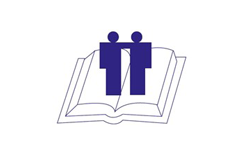Στo έργο SpicE συμμετέχουν 11 εταίροι οργανωμένοι σε 4 εθνικές συστάδες- ομάδες (clusters) (από τις χώρες της Ελλάδας, της Ισπανίας, της Κύπρου και της Βουλγαρίας). Κάθε εθνική συστάδα- ομάδα είναι αντιπροσωπευτική καθώς περιλαμβάνει ένα πάροχο αρχικής ή/και δια βίου εκπαίδευσης για εκπαιδευτικούς Πρωτοβάθμιας Εκπαίδευσης, Σχολεία και Σωματεία Εκπαιδευτικών. Στο έργο συμμετέχει, επίσης, και ένας εκπαιδευτικός και τεχνολογικός εταίρος (από την Ελλάδα) συνεισφέροντας με την σημαντική του εμπειρία στην ανάπτυξη και διαχείριση ενός Εικονικού Περιβάλλοντος Μάθησης και Συνεργασίας.
Εταίροι
Hellenic Open University (HOU)
Hellenic Open University (HOU) is the only Greek State University that offers formal and non-formal lifelong education, in both undergraduate and postgraduate levels, to more than 40.000 students who are dispersed all over the country. HOU comprises 4 Schools, which offer more than 50 programs in all 3 cycles, some of them jointly with other Greek or International Universities. In addition, HOU offers a large number of non-formal education programs via its Lifelong Learning Center. Its training methodology combines distance learning with principles of adult education, relies heavily on digital material and virtual meetings and used online training platforms and tools.
The DAISSy (Dynamic Ambient Intelligent Sociotechnical Systems) research group of the School of Science and Technology actively contributes towards achieving an inclusive and equal society of able and competent people. Its mission is to place people in the center of a smart technical ambience, thus enabling each and every one to master digital systems so as to achieve personal and societal benefit. DAISSy realizes society-centred educational and technological research, contributes to the development and adoption of smart environments, develops online learning platforms, MOOCs and self-assessment tools, empowers online communities of practice, enables professional development especially regarding digital, green and citizenship skills, applies, develops and contributes to competence frameworks, supports STEAM education, and promotes equity, inclusion and multiculturalism.
Website link: https://www.eap.gr
Website link: http://daissy.eap.gr/en/
Project representative: Natalia Spyropoulou, Project Manager & Researcher, [email protected]
University of Macedonia (UoM)
UOM is one of the three public tertiary education institutions situated in Thessaloniki. It has approximately 15.000 students. The Department of Educational and Social Policy (ESP) is one of the 8 Departments of UOM. It has approximately 850 undergraduate and 250 postgraduate students. The ESP department consists of 2 majors: a) Major in Education of Individuals with Special Educational Needs, and b) Major in Continuing Education. In particular,
(a) The Major in Education of Individuals with Special Educational Needs is pursued by prospective special education teachers. Indicative courses of the major are Instructional methodology, Education of students from various special education categories (Intellectual Disability, Learning Disabilities, Visual and Auditory Disabilities, ASD etc), as well as Inclusive Education.
(b) The Major in Continuing Education is pursued by prospective Adult Educators. Indicative courses of the major are Andragogy, Effective integration of ICT in teaching contexts, Legislative framework and European employment policies, Adult Psychology, and Lifelong guidance and career management skills.
Website link: https://www.uom.gr/en
Project representative: Professor Ioannis Agaliotis, [email protected]
ReadLab
ReadLab is an Information & Communication Technologies service provider and software developer in the field of e-learning, operating internationally, with partners from all over the world. ReadLab designs, develops, supports and operates IT systems and commercialises a wide range of software products in the field of e-learning, using state-of-the-art technologies.
Website link: https://read-lab.eu/
Project representative: Olga Karamichailidou, Project Manager & Researcher, [email protected]
University of Cyprus (UCY)
The University of Cyprus (UCY) is a public University with approximately 4000 undergraduate and 1000 masters and PhD students. The Department of Educational Sciences at the University of Cyprus is a large department with 22 members of the faculty, and 35 associate or assistant personnel. Our Department runs two undergraduate (primary and preprimary school education) programs, a pre-service post-graduate secondary education program (across all subject domains taught in secondary education) and seven postgraduate programs at the Masters and PhD level (including science, math and technology education). The University of Cyprus is the largest teacher training university of the country and the only one responsible for training secondary education teachers right before entering schools. In Science Education, and especially in our research group ReSciTEG (Research in Science and Technology Education Group), we are active in research into inquiry learning, ICT, computer supported collaborative learning, Living Labs (open innovation ecosystems), physical and virtual laboratory experimentation, modeling, science (including STEM and STEAM) curriculum development and assessment, RRI, conceptual understanding, teacher training and professional development, Open Schooling, educational evaluation and informal science education
Website link: https://www.ucy.ac.cy/?lang=en
Project representative: Dr. Marios Papaevripidou, Specialist Teaching Fellow of Science Education, [email protected]
Cyprus Ministry of Education, Sport and Youth (MOESY)
The Cyprus Ministry of Education, Sport and Youth (MOESY) is responsible for all public schools in Cyprus and for the implementation of educational laws and regulations in private schools. It focuses on the continuous improvement and quality upgrading of education through systematic and responsible planning, with the cooperation of all stakeholders. MOESY participates in the SPiCE project through the Department of Primary Education. The Department of Primary Education is responsible for the administration of Public, Community and Private Pre-primary Schools (Preprimary Education), Public and Private Primary Schools (Primary Education) and Special Schools as well as the provision of assistance to children with special needs who are attending Special Units in Primary and Pre-primary Schools (Education for Children with Special Needs). Over the last few years, the Ministry of Education, Sport and Youth has introduced a number of innovations within the framework of a general educational reform. These reforms have centered on improving the learning outcomes in all educational areas and for all pupils. Some key areas include the lowering of school starting age, new curricula and teaching materials, language learning support for students who don’t speak the school language and the introduction of a number of learning support measures either through state funds or through co-funded projects with the European Commission.
Website link: http://www.moec.gov.cy/en/
Project representative: Dr. Marios Charalampous, Primary Education Science Inspector, [email protected]
Trakia University (TUΝΙ)
The Department for Information and In-service Teacher Training (DIITT) is an autonomous part of Trakia University. It provides services in the areas of improving the qualification of teachers and administrative staff engaged in education; science development. DIITT offers training for in-service teachers from different levels of education – from kindergarten to high school. DIITT provides short term trainings and long term qualifications in methods of training; training in methodological and didactical issues in teaching school subjects; management of teachers’ career development; child and school psychology for educators, neuropedagogy, organization of educational processes; DIITT organizes an annual Pedagogical Forum – a conference, which has become a recognizable place for educators, policy makers- on local, national and European level. The Department publishes a quarterly e-magazine with articles and reviews on topics in pedagogy and psychology. The articles are published in Bulgarian, Russian or English.
Website link: https://www.dipku-sz.net/
Project representative: Vera Todorova, Assistant professor, [email protected]
Trade Union of Teachers (TUT)
The SINDIKAT OBRAZOVANIE KAM KT PODKREPA (Trade Union of Teachers – TUT) supports pedagogical specialists on a national scale in their professional development for better education for future generations. Syndicate “Education” is part of the Confederation of the Labour Syndicate Podkrepa. It works closely with the Ministry of Education and Science and the Ministry of Labour and Social Policy regarding changes in the current education policy and takes part in policy development. Podkrepa is a member of the European Trade Union Committee of Education together with 132 teacher syndicates across Europe and a member of Education International – the largest international teacher organisation. The Syndicate of Education was founded in December 1989, immediately after the democratic changes in Bulgaria. With its nearly twenty-year history, it has established itself as a corrective of state education policy and has gained a worthy place in the country’s political and social life. The Union of Education aims at protecting the rights, dignity and professional interests of the Bulgarian teachers. It works for the democratization, humanization and de ideologization of education in Bulgaria through democratic changes in the law, governance and management of education. There are curently 20.000 teachers who are members of the syndicate.
Website link: https://www.podkrepa-obrazovanie.com/en/
Project representative: Mr Yuliyan Petrov, President of SEP, [email protected]
Hristo Smirnenski Primary School (OUHS)
Hristo Smirnenski Primary School (OUHS) is located in the small town of Rakovski. It is in the region of Plovdiv, the second biggest town in Bulgaria. Hristo Smirnenski Primary School is one of the most modern schools in the region. Students have lessons in well-equipped classrooms; teachers use the latest IT technologies in education. Hristo Smirnenski Primary School includes two different structures: pupils aged 7 to 10 years and the other covers pupils from 11 to 14 years. We also have pre-school groups for pupils aged 5 and 6 years and who do not go to kindergarten, mainly with minority backgrounds. At present, 500 students are studying in the school. Traditionally, the school organizes activities that develop students’ 21st century key competencies. Students are engaged in different extracurricular activities and clubs according to their individual abilities, specific needs and personality development. We are Microsoft Innovative School and a Microsoft Innovative Expert is working at school. We can suggest different ways of collecting and presenting project information and organizing teachers’ meeting.
Website link: http://smirnenski.com/en
Project representative: Mrs. Nina Nedeva, Headmistress, [email protected]
University of Alicante (UA)
The University of Alicante (UA) was founded in 1979. Being one of the youngest universities in Spain, the UA is also considered one of the most innovative and fastest developing in Spain. More than 30000 national & 3000 international students are enrolled in 7 Faculties offering more than 50 degrees in all fields of study. Nowadays one of the university priorities is to guarantee UA students with disabilities the right to pursue their studies and reasonable adjustments according to their individual needs and to encourage their full involvement in University life. To achieve this goal the Student Support Centre was created as part of the Office of the Vice President for Students. It consists of a multidisciplinary team of social workers, psychologists, ICT accessibility technicians, sociologists and administrative staff, whose mission is to offer specific attention to the students of the University of Alicante. The SSC devotes special attention to equal opportunities in the workplace for students with disabilities, providing technical and vocational guidance, access to continuous training programmes and job databases, as well as support when searching for employment.
Website link: https://www.ua.es
Project representative: Rosabel Roig-Vila, University Professor in Educational Technology, [email protected]
European SchoolnNet (EUN)
European SchoolnNet (EUN) is based in Belgium and is a network of 30+ European Ministries of Education. As a non-profit organization, the strategic aim of the network is to bring innovation in teaching and learning to ministries of education, schools, teachers, researchers, and industry partners. EUN helps its Ministries develop policies to support the educational reform process and works on three areas:
- Providing usable evidence and data in innovation in education to inform policy recommendations
- Supporting schools and teachers in their teaching practices, via three major European networks – eTwinning (school partnerships), Scientix (STEM) and BIK (eSafety)
- Helping mainstream innovation and support a pan-European network of schools engaged in innovative teaching and learning approaches.













